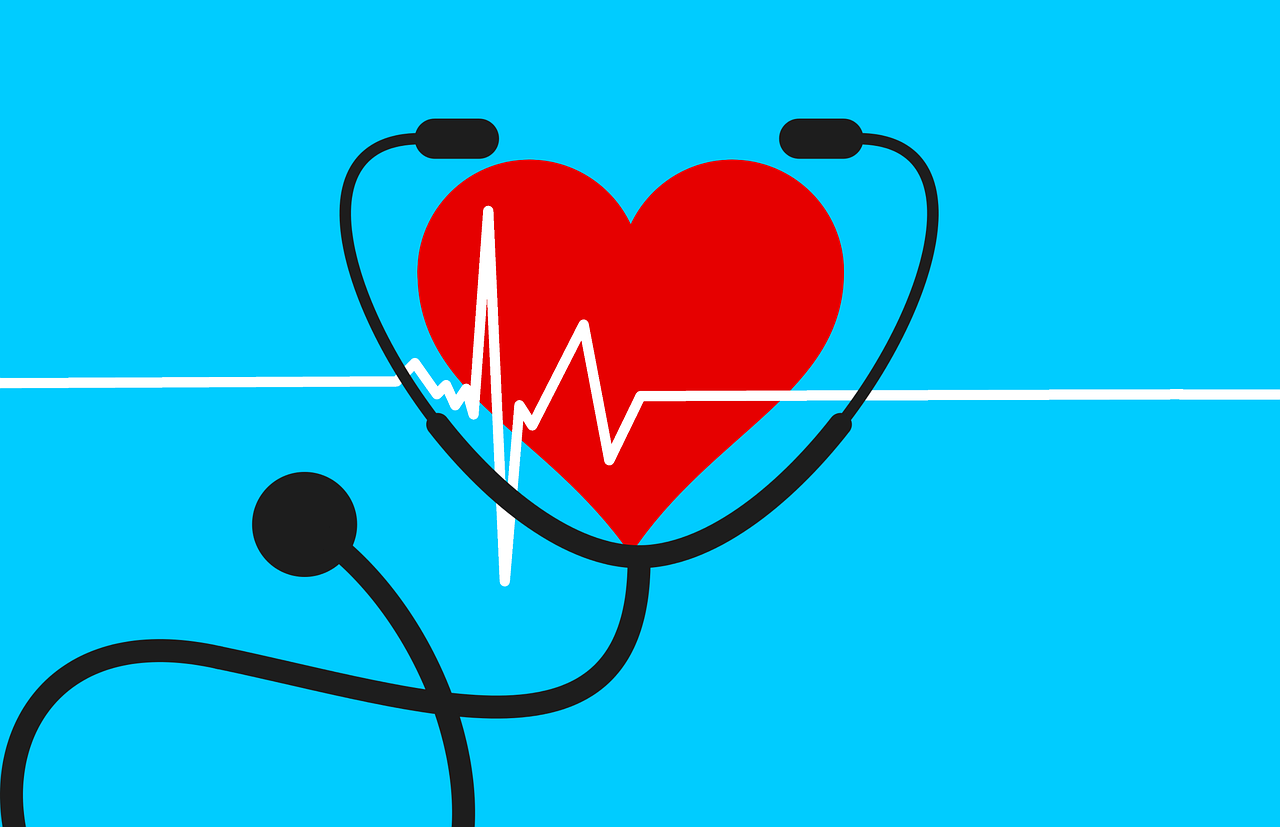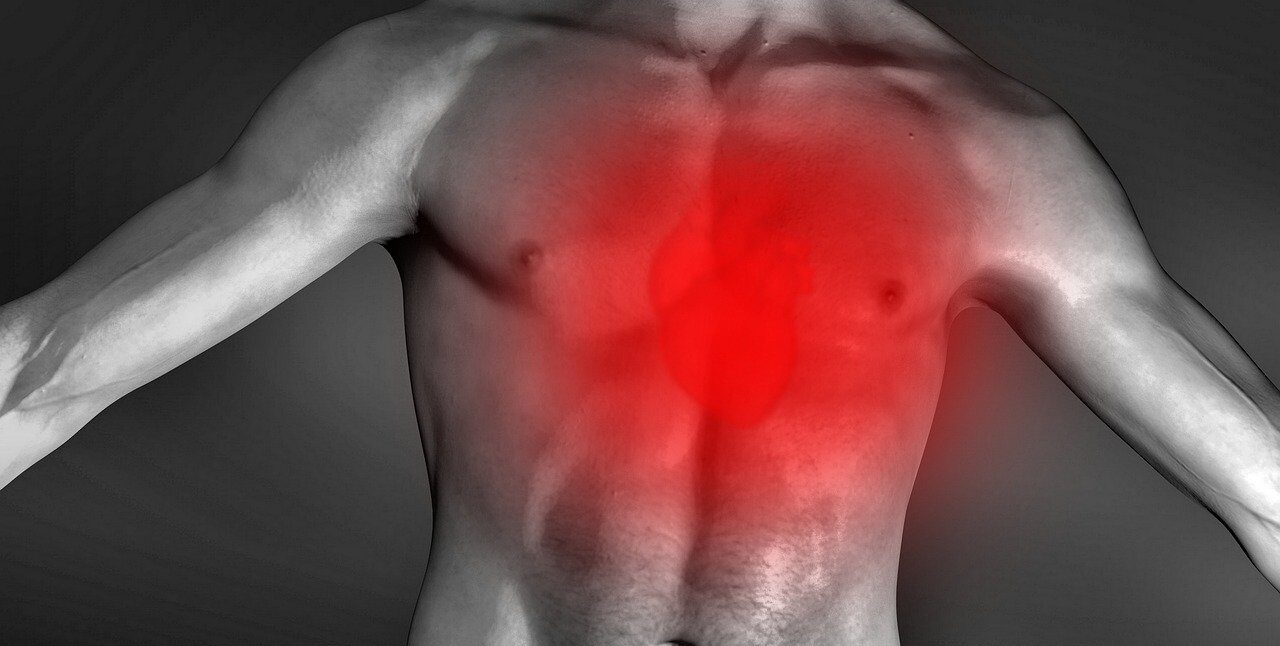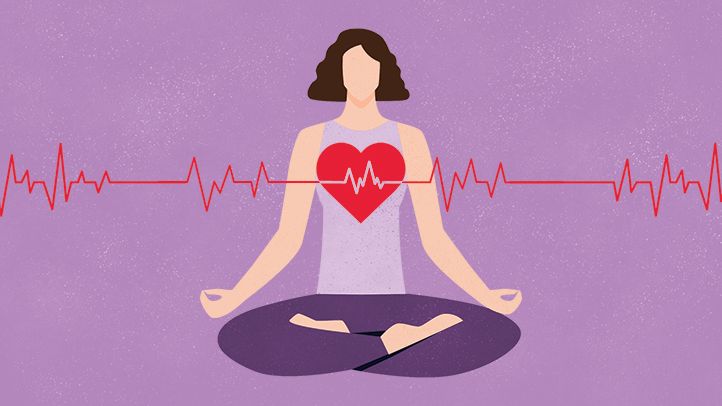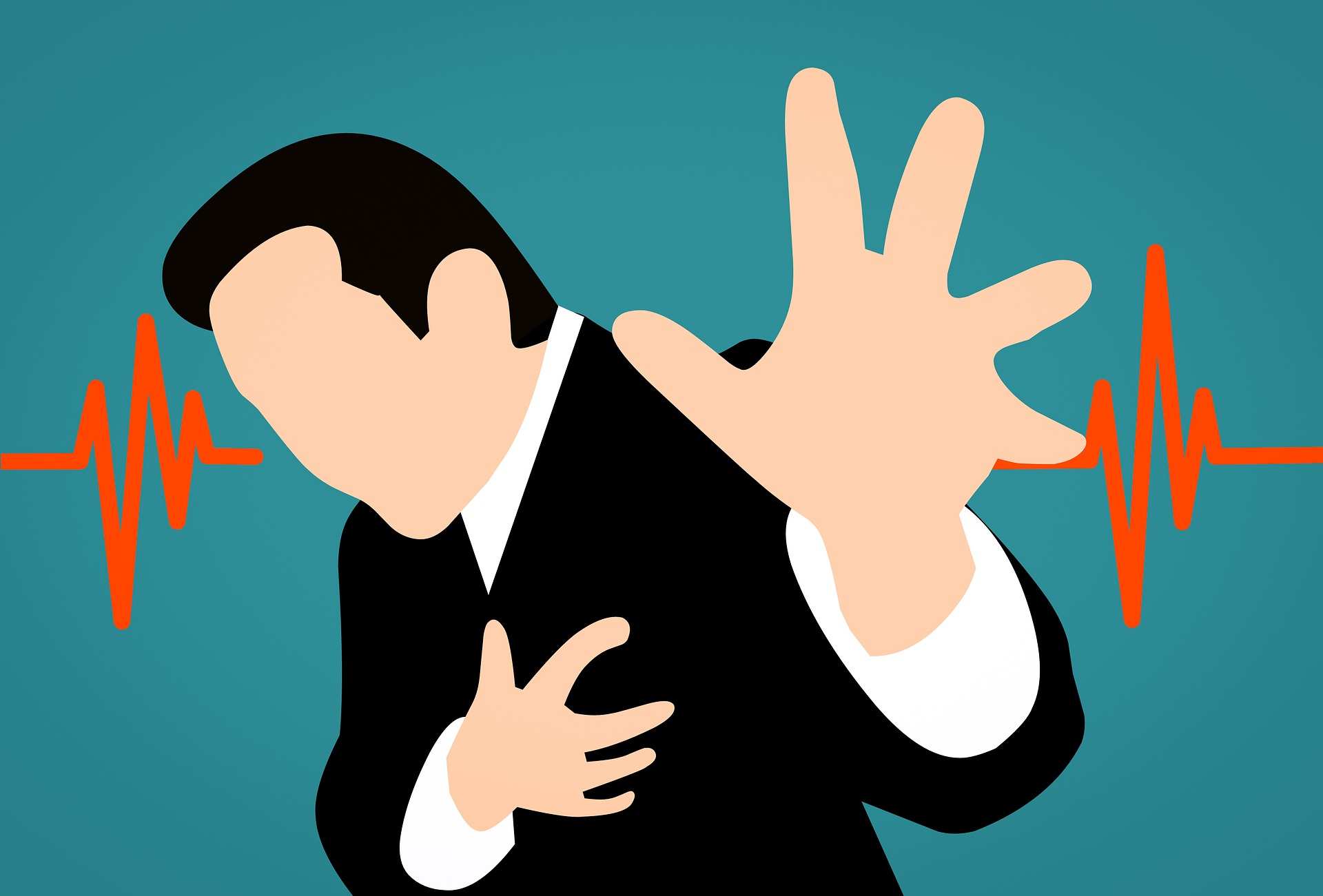Why Are Young People Dying of Sudden Strokes and Heart Attacks?
Today we see young and fit people who eat healthily, exercise regularly, go to gyms, and have ripped bodies dying of sudden heart attacks and strokes. Why is this happening? Is there a gap in cardiovascular care? Or are we so focused on post-heart attack action, that we have failed to pay attention to prevention?
Let’s look at some simple statistics to explore this. In India alone, more than two million heart attacks occur annually. One person dies of it every 33 seconds. Several studies have pointed out that cardiovascular diseases (CVD) strike Indians a decade earlier compared to their Western counterparts. The information and knowledge we have around heart attacks is not the gap. It is action. Wisdom and knowledge are useless if you do not put them into action. We need to start by busting some myths.

CVDs are not age-related disorders, they are lifestyle diseases.
The first myth that we need to break around cardiovascular diseases is that it is not age-related, it is a lifestyle disease. The human heart is a beautiful resilient organ that beats over 2.5 billion times over your average lifetime pumping gallons of blood to trillions of cells to keep you alive and thriving.
The human body is very intelligently designed. Many individuals who are born with a hole in their hearts thrive into adulthood without needing any medical intervention, thanks to the phenomenon of angiogenesis. It is the process by which new blood vessels form, allowing the delivery of oxygen and nutrients to the body’s tissues. It is crucial for growth, development, and the healing of wounds. So, what we need to shift our attention to is our lifestyle.
Inflammation

Today when most heart attacks occur, the biggest debate is around increasing cholesterol levels and triglycerides. But while these medical parameters certainly play a role and maintaining healthy levels is important, we cannot blame heart attacks and strokes solely on them. The root cause of most heart attacks is inflammation, oxidative damage in the heart, sleep deprivation, and chronic stress.
Inflammation and oxidative damage are mainly caused by the free radicals from the food that we eat, the air that we breathe, and the everyday lifestyle choices that we make. So, we need a holistic approach that includes lifestyle changes to improve our cardiovascular health.
Sleep deprivation

A sleep-deprived body is your biggest curse when it comes to heart health. Skimping on sleep to work or socialize more doesn’t make you cool. It disrupts your body’s circadian rhythm and makes you prone to heart attacks. Several studies and scientific journals link sleep deprivation with increased inflammation in the heart. You could have access to the best diet and exercise regimens in the world, but if you are sleep-deprived all the time, your body is going to fail you at some point.
If you argue that several billionaires survive on four hours of sleep, you need to remember that you are a unique bio-individual. What works for someone else, may not work for you. Everybody has a certain threshold, beyond which it starts breaking down. If you have been able to pull an all-nighter without any difficulties it’s just because your body hasn’t reached that threshold yet.
Besides, staying on gadgets all night increases your exposure to blue light which suppresses your sleep hormone, melatonin. This suppression of melatonin has been linked to a high-risk factor for cardiac disease, stroke, and heart attacks. Not just CVDs, bad sleep can make you prone to a gamut of diseases like diabetes, Alzheimer’s, poor skin, hair, and insulin insensitivity, all of which are connected with inflammation.
What then can you do to tackle this? Firstly, discipline. You might already know that sleep is necessary for you, but it can be a lack of discipline that comes in the way of putting your goals into action. Secondly, adopt a fixed sleeping schedule and stick to it for at least five days a week. Sleeping early doesn’t mean you stop having a fun life. You just need to plan it better. You may like to believe that you are on the go all the time, but if you were to sit down and organize your day better, you will find at least three to four hours of extra time.
We need to stop glorifying hustle and grind and give our bodies the rest they deserve. Look for balance. Good quality sleep is magical. It helps to manage your blood pressure, heart rate, regulate body temperature, balance hormones, and even carry out detoxification at cellular levels.
Chronic Stress

Top cardiologists and cardiovascular experts will tell you how chronic stress is the number one cause of heart attacks. Before you say everyone has stress, which is true, understand that how you relate to your stress and navigate it, is important.
Assess your stressors. Ask yourself: How do you manage stressful situations? Do you rest or relax enough? If you don’t, ask yourself how greedy have you gotten that you have taken up so much on your plate that you can’t find time to rest or relax?
In your interpersonal relationships, ask yourself: Are you stuck in any of your relationships because you cannot make a tough decision? Are you letting a toxic relationship drain every bit of energy? Or are you taking steps to manage or end it?
We are all living in deeply stressful and overly competitive times. Even kids today have sets of stressors that didn’t exist earlier when it comes to achieving goals, targets, peer pressure, and the need to fit in. Several school-going kids sleep after 11 pm. And so when autoimmune conditions hit their sleep-deprived bodies, parents who spend large chunks of money on organic food and expensive supplements are at a loss for words.
Chronic stress and your inability to manage it puts you out of homeostasis. This can fluctuate your blood pressure, sugar levels, and pulse rate. We need to find ways to slow down. The greater your stress, the more your spike in cortisol levels. The more cortisol you have, the more inflammation you have, and thus an increased risk of heart attacks and stroke.
View this post on Instagram
What are the other lifestyle changes you can adopt to prevent heart attacks?
Multiple lifestyle factors can contribute to a heart attack. Here are some changes you can adopt to tackle them:
- Switch refined oils with healthier alternatives

Up until two decades ago, India relied on healthy and traditional cold-pressed oils, which were replaced by the era of cheap refined oil. Refined vegetable oils cooked at high temperatures are rich in omega 6 fatty acids. While Omega 3 is excellent for our heart, hair, skin, cells, and metabolism, excess Omega 6 can exacerbate inflammation and oxidative stress in the body, leading to heart attacks.
Similarly, olive oil is an excellent heart-friendly and healthy oil. But it works best for Mediterranean cuisine which is mostly for raw consumption like drizzling on salads, hummus, bread, and so on. It has a low smoking point that makes it unsuitable for Indian dishes which require a lot of cooking. When you cook your food longer in low smoke oil you produce more free radicals which lead to increased inflammation and oxidative stress, also increasing your risk of a heart attack.
Don’t try to save a few bucks by choosing refined oils. They may be cheap but they come at the cost of your health. You will land up using the money you didn’t spend on the oil on treating the ailments that result from it. If you can’t change it, use the right quantity. Switch to traditional options like cold-pressed or wood-pressed mustard oil, groundnut oil, mustard, peanut, or ghee.
- Avoid overconsumption of processed and packaged foods
Packaged and processed food is made with low-grade refined oil that is reused over and over again, which increases inflammation and oxidative damage in the body. While everybody enjoys eating out once in a while, overconsumption can have unhealthy repercussions on your body and heart.
- Consume the right quality and quantity of saturated fats
For the longest time, saturated fats present in desi ghee, coconut oil, egg yolks, have been wrongly given a bad name. But, we need saturated fats. If it is so deadly for our health, almost every Indian in the south who relies heavily on coconut oil would be suffering from heart ailments. Even the American Heart Association has now admitted that saturated fats are not the cause behind heart attacks. These are good fats or essential fatty acids which are excellent for heart health. Consuming them in moderation can go a long way in preventing the risk of heart attacks.
You can eat nuts like peanuts, almonds, cashews, and pistachios regularly. Just avoid eating them in overly processed forms that are deep-fried, salted, and have emulsifiers to enhance the taste. Eat your egg yolks too, because they are rich in zinc, selenium, and other trace minerals that are good for your heart. Consume foods rich in Omega 3 to reduce your risk of heart disease. Rich sources include fatty fish, flax seeds, chia seeds, walnuts, cod liver oil, and so on.
- Cut down refined sugars and simple carbohydrates
Overconsumption of refined sugar and carbohydrates can spike your blood sugar levels causing your body to produce more insulin. This increases inflammation and the risk of a heart attack. However, we must remember that there are good carbs and bad carbs. For generations, Indian cuisine has had a rich cuisine of complex carbs and fermented foods like dosas, idlis, rotis, and rice, which are excellent for heart and gut health. So, carbs are not the culprit, the quality and quantity you eat are.
People who give up these complex carb sources are likely to become deficient in Vitamin K2. This deficiency can result in calcification of arteries and blockage. In addition to decreasing your refined carb intake, choosing the right type of carbohydrate is equally important. You can switch to consuming fiber-rich carbs like whole grains, seeds, and legumes. Cut down or avoid refined sugar and refined flour that have no nutritive value and work against your health. Eat deep-fried foods in moderation to keep your cholesterol levels in check.
Don’t be a couch potato. Move, move and keep moving. Your heart is a muscle, and so it needs exercise to remain strong. Research points out that people who sit for more than 8 hours a day are most prone to developing type 2 diabetes and cardiovascular disease. Remember, the human body was never designed to sit. If your job requires you to sit long hours, take regular breaks and engage in simple stretching. Even if you don’t engage in a full-fledged workout, just stay active.
Choose fun workouts that you enjoy — dancing, aerobics, Zumba, swimming, whatever it is, but keep that body moving. Aerobic exercises are extremely beneficial for your heart health. They increase your heart rate making it work more and improving its capacity to pump blood under stress. If you are just starting, fast-paced walking or jogging daily for 30 minutes can improve heart health. You can also follow simple diaphragmatic breathing techniques in yoga to keep a check on your systolic and diastolic blood pressure levels too.
Having said that, over-working or overtraining out with little or no rest or recovery period is as harmful as under-exercising. So, figure out the adequate level of activity your body needs and stick to that schedule. We often come across marathoners skipping sleep to run long marathons and thinking of it as a cool thing to tweet about, not realizing that it’s putting their hearts in danger. If you have to overtrain because your exercise goals demand it, adding rest and recovery to your plan is a must.
- Manage your Type 2 diabetes
If you are a Type 2 diabetic, improving your lifestyle and managing your condition can go a long way in reducing risk, because almost one in two people with heart disease are diabetics. It is a potent risk factor. Remember, Type 2 diabetes is a lifestyle disorder and completely reversible in most cases.
Move your focus from just suppressing your symptoms to addressing the root cause of your condition. Understand that diabetes isn’t just about sugar levels. It starts at the pancreatic level. So, focus on your pancreatic health. Spread the intakes of fruits across the day to avoid excess fructose. If you are a fast eater, slow down and chew well to aid digestion. Avoid long gaps between meals and eat at fixed times. Most of our hormonal balance occurs while we sleep and when we are chronically stressed. And insulin is nothing but a hormone! So, managing both stress and sleep is crucial in managing diabetes.
- Avoid smoking and passive smoking
Every puff you take increases the risk of heart attacks and strokes not just for you but also for those who breathe in the passive smoke by 20 to 30%. It causes inflammation and increases oxidative damage in the body. Before you quote examples of people who smoke well into their 90s, we must ask you to remember the rule of bio-individuality. Smoking can damage your blood vessels, causing atherosclerosis and blockages. The carbon monoxide in cigarette smoke increases your blood pressure and heart rate and forces your heart to work twice as hard for oxygen. Nix that vice to protect your heart.
- Check your salt

Consuming the right kind of salt also plays an important role in preventing the risk of heart attacks. Avoid consuming large quantities of refined varieties of salt, because they can be inflammatory. Switch to pink or rock salt, or a combination of both based on what suits you. If you have too much potassium in your system, you may be advised to stick to regular table salt. Sodium is important to maintain optimum blood pressure. Keep your medical professional in the loop and make an informed decision while switching salts.
- Manage your stress
Learn to manage your stress levels. From time to time, indulge in activities that make you happy. Meditate, exercise, listen to music, rekindle your hobbies. Change your attitude and relation with stress to prevent the increased risk of heart attacks. Before renting out your heart space and mind space to a person, event or experience, ask yourself if it is worth it. While stress is inevitable, what sets a happy person apart from a stressed person is their capacity to diffuse and navigate stress and see things in a positive light.
You can continue attending stress management classes and workshops, and while all of them can help you feel better for some time, the real change happens when you start changing your perspective towards life and how you relate to stress. Learn to accept and let go. Build your self-worth, create a beautiful inner world, reflect inwards, and allow these teachings to slip into your daily living.
- Fix your bad sleep cycles
Stop piling on your sleep debt. Your heart is a muscle that needs to recover. Sleeping is the best medication and meditation to achieve this. Sleep deprivation increases your insulin resistance and makes you more prone to type 2 diabetes and a gamut of other metabolic conditions.
Lack of sleep activates your body’s stress response, triggers the sympathetic nervous system, and increases the production of cortisol. Adopt pre-bedtime rituals for deep and good quality sleep. Switch off all gadgets an hour or two before bed. Eat early dinners. Maintain pitch darkness in your bedroom to increase the secretion of melatonin. Take a warm shower for muscle relaxation, meditate, offer gratitude or pray.
- Keep laughing

Laughter releases your feel-good hormone, endorphin, and also reduces the risk of heart attack and stroke. Human beings thrive in a state of happiness. Watch a show or read books that make you smile and tickle your funny bones. Laughing lowers your stress hormones, regulates blood pressure, decreases inflammation in the arteries, and increases good cholesterol.
- Go for regular screenings
It doesn’t matter how old or young you are, going for regular screenings and investing in preventive wellness can go a long way in identifying risk factors and eliminating them. If one of your risk factors is a genetic predisposition, it doesn’t mean you cannot do anything about it. You can still work on your lifestyle to protect yourself. If you are on long-term medication whose side effects may be linked to heart health risks, ensure you discuss it with your medical professional.
This simple breathing technique can save your life in a heart attack

In the event of a heart attack, thinking on your feet and acting quickly can save lives. But what can you do until help arrives? You could be in an elevator, washroom, or even your bed when you experience the onset of a heart attack. It could begin with mild discomfort and pain in their chest and left arm before it turns into a full-blown heart attack. It may also make you feel lightheaded and nauseous and experience palpitations. This Chinese life-saving breathing technique could save your life.
The Ha-Ku breathing method:
- Inhale with a HA sound – Whether you are sitting, crouching, or lying sideways, doesn’t matter. Take in a lot of oxygen with your mouth and make the ‘HA’ sound.
- Exhale with a KU sound – Exhale the air that you took in like you are trying to cough i.e. a forceful ‘KU’ sound. Ensure to inhale deeply before you exhale with a cough sound. You can also replace this sound with an actual cough. It has to be a forceful exhalation.
- Repeat – Keep repeating the pattern Ha – Ku – Ha – Ku – Ha – Ku a couple of times so that it gets registered in your subconscious mind.
How does it help?
This Ha-Ku method focuses on pushing oxygen through the lungs. It helps us squeeze the heart to pump more blood. Following the pattern rushes oxygen-rich blood towards your heart, which is exactly what is required during a heart attack or a cardiac arrest. It improves the oxygen saturation level of the blood (SpO2) that can be life-saving.
Disclaimer: Practicing this breathing technique to get it right is important. None of the suggestions in this blog can replace medical advice or medicine. Please keep your medical professional in the loop before trying anything new.
|
From a pimple to cancer, our You Care Wellness Program helps you find a way Talk to our integrative team of experts today 18001020253 |











Comments (5)
Thanks for your wonderful advice.
Thank you, Amina 🙂
Your every word hits me hard… Wish to learning more from you… And consulting you… All the best Luke… My fav…
Thank you, Ayesha. Keep winning 🙂 You can reach out to my team by calling 18001020253 or writing at info@lukecoutinho.com. For a consult with me, you can write to appointments@lukecoutinho.com
You forgot to mention the experimental mRNA “vaccine” given to the entire world by Pfizer, a company with a long and documented criminal history of marketing fraud, injury and death.